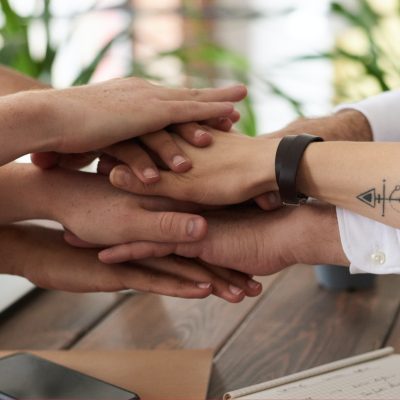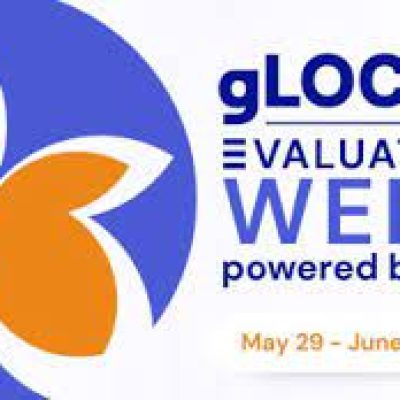On Tuesday 25 April 2023, as part of Youth in Evaluation week’s worldwide events, Agulhas Applied Knowledge hosted a hybrid online and in person discussion on ‘Power and meaningful inclusion of youth in international policy evaluation’.
Our panel of speakers brought insights from perspectives in international development, foreign policy and youth advocacy: Shona Warren, Agulhas analyst and global board member of the Open Think Tank Network, a think tank network which publishes research and encourages youth engagement in foreign policy discussions; Naomi Yehdego, policy and advocacy adviser for Bond UK and advisory board member for REDI collective; and Okech Adhiambo, feminist community organizer and advocate for Our Generation for Inclusive Peace. The panel discussed the importance of and the ways in which young people can be included and valued in evaluations, chaired by Agulhas Director, Catherine Cameron.
Agulhas were delighted to co-host the event with REDI Collective; a network for people of colour working in the international development sector; and Our Generation for Inclusive Peace, a feminist organisation that aims to advance, shape, and influence the Women, Peace, & Security (WPS) and Youth, Peace, & Security (YPS) agendas to be more inclusive through advancing young voices and experiences.
The panellists discussed youth participation from two sides of the evaluation process. First, the participation of youth throughout the policy cycle, including at the design and scoping phase of evaluations, as well as in reviews and research. Second, the importance of, and barriers to, youth participation in the teams conducting evaluations.
The significance of the conversation was well understood. Young people are currently underrepresented in government decision making and yet, today, 1.8 billion adolescents and youth (ages 10 to 24) make up the largest generation of young people in history.[i] 90% of these youth live in developing countries, where they make up a large proportion of the population[ii]. This decade has been declared the Decade of Action for the sustainable development goals, leading up to the deadline of 2030. Actions taken towards reaching these goals should require the groups that are most impacted to be meaningfully included in plans and progress. This is not only a normative requirement, but a practical one. The impact of youth participation on the success of policies has been studied and proven[iii]. Increased ownership of initiatives can contribute to better results when properly implemented, and a diversity of viewpoints can lead to improved outcomes and more innovative approaches. As Okech highlighted, young people must be made ‘agents of their own change’ in order to enhance their impact on international policies to tackle global challenges.
Youth participation is not a new concept, with a number of NGOs, multilaterals, donors and governments creating youth strategies and sharing resources for improved involvement. Despite this, the inclusion of young people in evaluations as partners, experts, and collaborators remains an underdeveloped practice in our sector, and Okech highlighted that current processes are often extractive, rather than collaborative. The question permeating the panel discussion was how can we make youth inclusion meaningful?
Our panel and attendees considered several ways to achieve this. Naomi suggested that we might reconsider our definition of the term ‘expert’, to also include lived experience approaches to expertise, particularly where young people may have the most valuable life experiences in the policy area under consideration. Okech asked the group to consider giving ‘weight’ to young people’s feedback in evaluations, including them not only at the final stage of the process, but closing the feedback loop and prioritising those whose lives will be most impacted by policies in the medium and long term future. Shona highlighted that to do all of this, resources must be built into evaluation budgets to ensure there is the time available to engage meaningfully with young people as key stakeholders. At Agulhas, we follow a collaborative approach to evaluations, seeking to involve all levels of an organisation in the process of making recommendations. This increases the likelihood that recommendations are relevant and appreciated – and hence their chances of success. A collaborative approach is also a key starting point for meaningful youth inclusion.
Positive examples of good practice were shared by our panellists. Naomi gave the example of Restless Development, an international development organisation that focuses on engaging young people in development programmes, which specifically has a youth-led accountability programme involving young people in monitoring and evaluating development interventions. Naomi highlighted that through a shift in perspective to recognise ‘youth’ as key stakeholders and co-designers of evaluation and policy, we can change the way things are being done.
Ellie at Agulhas shared Our Generation for Inclusive Peace’s Guidance Note on ‘How to: Meaningfully Engage Youth Activists and Youth-Led Organisations’, which provides a practical toolkit for organisations working with youth activists, to ensure young people’s meaningful and effective participation in discussions and decision-making processes. Shona flagged that national youth climate councils, organisations such as the Youth for Climate Movement, the global strikes led by young people such as Greta Thunberg, and yearly Nationally Determined Contribution (NDC) engagement with youth communities, all contribute to a more inclusive conversation in the international development and climate policy space. Okech spotlighted the actions of the African Union of the Youth Envoy to convene six regional, intergenerational dialogues as part of the Youth Silencing the Guns campaign.
These, and other great examples from our audience, brought the discussion to a positive close. Events such as this, and the wider Youth in Evaluation Week initiative, spotlight the capability and capacity of youth, and the potential for meaningful engagement if properly supported, promoted and resourced. Collectively and individually, we committed to continue to prioritise these discussions, seek to make positive strides towards meaningful youth inclusion, and help to shift the power within our sector, so that those most impacted by international development and climate policy have a significant say in their futures. As part of the Youth in Evaluation week a series of standards have been launched: for government and academia, for international organisations and the private sector, and for youth organisations and VOPEs.
References:
[i] We noted in our discussion that there is no one agreed definition of ‘youth’, though the UN Secretariat defines ‘youth’ as those persons between the ages of 15 and 24 years. Other organisations define ‘youth’ as under 25; others as those under 30, etc.
[ii] United Nations (2018) Youth 2030 Working With and For Young People United Nations Youth Strategy, link.
[iii] OECD (2017), ‘Chapter 8. ‘Engaging youth in policy-making processes (Module 6)’ in Evidence-based Policy Making for Youth Well-being: A Toolkit, OECD Development Policy Tools, OECD Publishing, Paris. link


